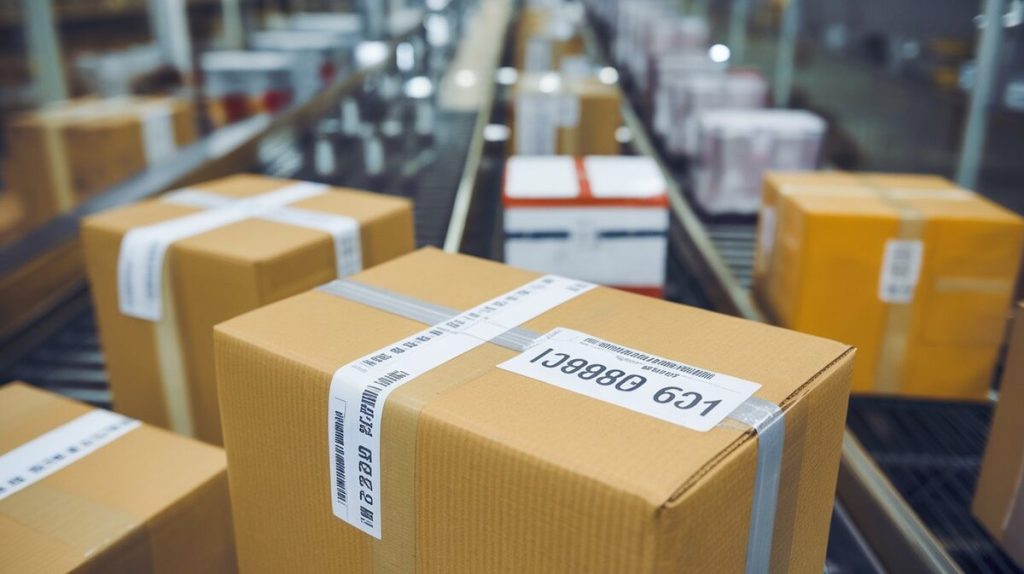Chargebacks are a persistent issue for businesses, especially in eCommerce. They lead to financial losses and complicate merchant operations. One often-overlooked cause of chargebacks is poor shipping practices. This article focuses on how accurate shipping can reduce chargebacks and offers practical strategies to safeguard your business.
Chargebacks and Their Financial Impact
Chargebacks occur when a customer disputes a payment and requests a reversal from their bank. Merchants face not only lost revenue but also chargeback fees, which range from $20 to $100 per case. The overall cost for merchants extends beyond these fees, with studies showing that for every $1 lost to fraud, businesses incur up to $3.75 in associated costs.
A large percentage of chargebacks, between 60-80%, are categorized as friendly fraud, where the customer receives the product but disputes the charge anyway. Other causes include criminal fraud and merchant errors, such as incorrect shipping.
Common Causes of Chargebacks
The primary reasons customers file chargebacks include:
- Delayed or incorrect shipping information.
- Misleading or unclear product descriptions.
- Lack of transparency in return policies.
Table 1: Common Causes of Chargebacks
| Cause | Percentage of Chargebacks |
|---|---|
| Friendly Fraud | 60-80% |
| Criminal Fraud | <10% |
| Shipping Issues | 20-30% |
Impact on Merchant Operations
Chargebacks not only cost businesses money but also affect their reputation and standing with payment processors. High chargeback ratios (above 1%) can lead to penalties or account suspensions from merchant service providers like Visa and MasterCard. This creates long-term risks, including restricted access to payment services and higher transaction fees.

The Role of Accurate Shipping in Reducing Chargebacks
Shipping practices play a significant role in mitigating chargebacks. Poor handling of shipments, such as delays or errors in delivery addresses, often leads to disputes. Here are practical ways accurate shipping can prevent chargebacks:
Timely Shipping Reduces Disputes
Customers expect fast, reliable delivery. When orders are delayed, customers may believe the item will never arrive and initiate a chargeback. By partnering with reliable logistics providers and offering tracking tools, merchants can reduce chargebacks by ensuring timely deliveries. A report by Visa highlights that 25-30% of chargebacks can be linked to shipping delays.
Address Verification Prevents Delivery Issues
Inaccurate shipping addresses are a common cause of undelivered packages, leading to chargebacks. Using Address Verification Services (AVS) can help ensure correct deliveries. AVS compares the billing and shipping addresses during a transaction to verify that they match. Stripe and other payment processors offer built-in AVS to reduce errors.
Table 2: Key Shipping Practices and Their Impact on Chargebacks
| Shipping Practice | Chargeback Reduction (%) |
|---|---|
| Timely Shipping | 25-30% |
| Address Verification | 15-20% |
| Clear Shipping Policies | 20-25% |
Clear Shipping and Return Policies
A lack of clarity in shipping or return policies can confuse customers, leading to disputes. Businesses should display clear policies regarding shipping timelines, return processes, and refund eligibility to reduce the likelihood of misunderstandings. According to Mastercard, 96% of customers are less likely to file a chargeback when they can easily find these policies.
Proactive Chargeback Management with Data
Understanding the reasons for chargebacks is essential for prevention. By analyzing transaction and shipping data, merchants can identify patterns and take proactive steps to address issues before they lead to disputes. Chargeback prevention platforms, such as Merchanto.org, offer merchants tools to monitor chargebacks and manage disputes more effectively. Merchanto, an official partner of Visa and MasterCard, helps businesses respond to chargebacks before they escalate, using real-time alerts and dispute management systems. Explore their services at Merchanto.org.
Chargeback Alerts
Chargeback alerts notify merchants when a customer initiates a chargeback, giving them a window of 24-72 hours to resolve the issue before it becomes a formal dispute. By addressing the customer’s concern quickly, whether through a refund or communication, merchants can avoid the chargeback entirely.
Table 3: Chargeback Alert Providers and Time to Resolution
| Provider | Resolution Window |
|---|---|
| PayPal Chargeback Alerts | 48 hours |

Fraud Prevention and Chargeback Reduction
Accurate shipping can address chargebacks related to logistics, but fraud prevention is another critical element. Fraud-related chargebacks typically stem from unauthorized transactions using stolen payment information. Here’s how merchants can minimize fraud:
Use 3D Secure and Multi-Factor Authentication
3D Secure, adopted widely in Europe and optional elsewhere, requires customers to verify their identity during transactions, reducing the chance of fraud. This authentication adds an additional security layer, cutting fraudulent chargebacks by up to 85%.
Implement Address Verification Services (AVS)
AVS checks if the provided shipping address matches the billing address on file with the credit card issuer. This helps flag potential fraud, especially for high-risk orders. AVS can prevent up to 20% of fraud-related chargebacks.
Train Employees to Spot Fraud
For businesses with customer service teams, training employees to identify suspicious transactions is vital. Common red flags include mismatched billing and shipping addresses, unusually large orders, and frequent purchases from a new account. Employees should be trained to handle these situations by verifying information before proceeding with the sale.
The Importance of Responsive Customer Service
Efficient customer service is essential in preventing chargebacks. A significant number of chargebacks occur when customers feel their issues are not being addressed. According to Visa, 80% of chargebacks could be avoided through better customer communication.
Best Practices for Customer Service
- Provide 24/7 Support: Offering around-the-clock customer service via phone, email, or chat helps resolve issues quickly.
- Automate Responses for Common Inquiries: Automated systems can handle routine questions such as order status or shipping updates, freeing customer service agents to focus on more complex issues.
- Empower Customer Service Teams: Train employees to resolve disputes directly, offer refunds, or issue replacements to prevent escalations to chargebacks.
Conclusion
Accurate shipping is a crucial strategy for reducing chargebacks. By providing timely deliveries, clear communication, and detailed shipping policies, merchants can significantly lower their chargeback rates.
Chargebacks not only affect immediate revenue but can also jeopardize long-term relationships with payment processors. By combining accurate shipping practices with proactive fraud detection and responsive customer service, merchants can safeguard their businesses from the financial strain of chargebacks.
This article has provided actionable strategies on how accurate shipping and proactive customer service can prevent chargebacks. By focusing on core issues, like timely deliveries and fraud detection, businesses can build trust and protect their revenue from unnecessary disputes.



